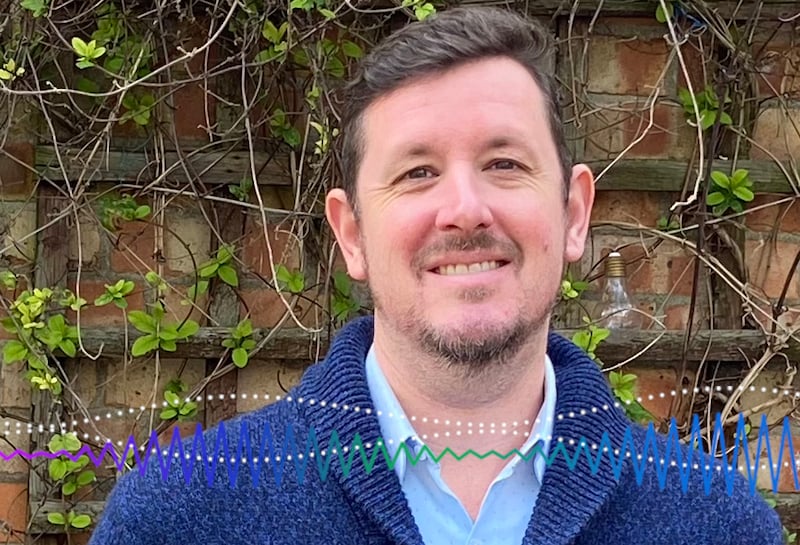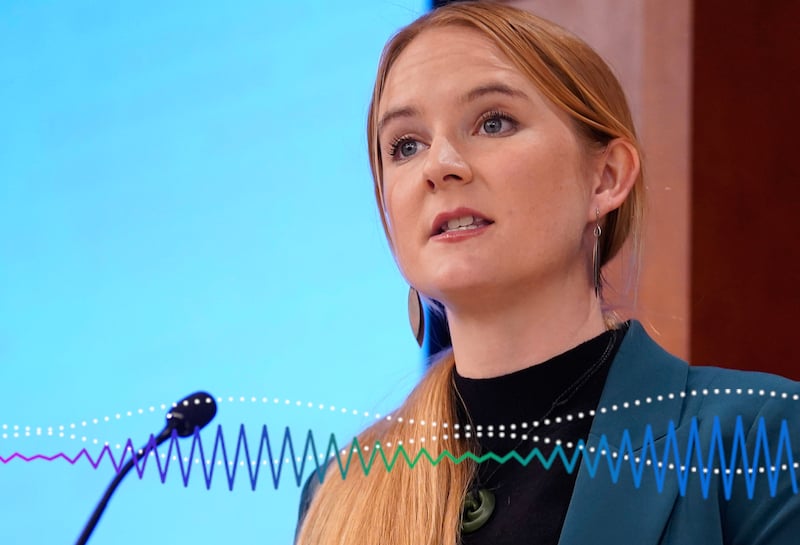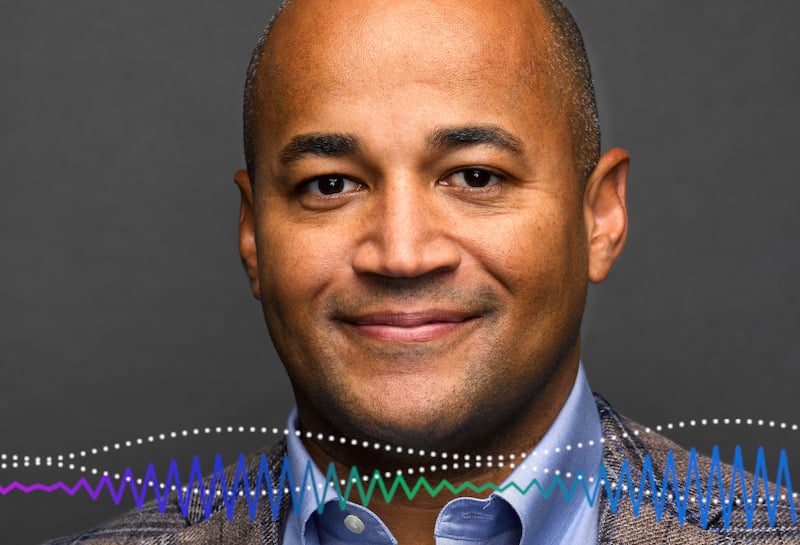
James Cust on Oil Discoveries: Managing Expectations
In This Episode
Major discoveries of oil and gas deposits have always been cause for celebration in developing countries, in anticipation of the potential financial windfall. But research has shown that countries with abundant revenues from natural resources often tend to have less economic growth and more social problems than do non-resource-rich countries. And in this podcast, World Bank economist James Cust says in many cases, economic growth begins to underperform long before the first drop of oil is ever produced. Cust and David Mihalyi of the Natural Resource Governance Institute, coauthored The Presource Curse, published in the December 2017 edition of the IMF’s Finance and Development magazine.
Hello, I'm Bruce Edwards and welcome to this podcast produced by the International Monetary Fund. In this program, how the promise of an oil discovery can lead first to jubilation then to economic jeopardy.
MR. CUST [soundbite]: “ While they saved about $500 million from oil revenues, at the same time they were borrowing on Eurobond markets. And they borrowed about $4.5 billion US. ”
MR. EDWARDS: While major discoveries of oil and gas deposits have always been cause for a celebration, especially in developing countries, economists James Cust says countries with abundant revenues from natural resources often tend to have less economic growth and more social problems. In fact, in many cases, economic growth begins to underperform long before the first drop of oil is ever produced. Cust is an economist in the office of the Chief Economist for Africa at the World Bank, and co-author of an article entitled, “ThePresource Curse,” published in the December 2017 edition of Finance and Development magazine.
MR. EDWARDS: So, why do so many countries fail to reap the benefits of natural resource discoveries, such as oil discoveries? There are so many mineral rich countries out there that are among the poorest in the world.
MR. CUST: That's right. Let me first share a very striking statistic. So, the share of the world's poor living in resource rich countries in the year 2000 was less than 25 percent. According to projections, by 2030 the share of the world's poor in resource rich countries will be almost 75 percent. So, the problem of eradicating extreme poverty is going to be a problem of how resource rich countries manage their resource wealth.
And as you know, the record has been patchy. Part of this statistic is because non-resource rich countries have performed so well. Countries like China and India are great examples of this massive poverty reduction in the non-resource rich countries. Many low-income resource rich countries have performed very poorly in terms of poverty reduction in spite of the biggest commodity price boom we've ever seen.
MR. EDWARDS: So, your recent article in Finance and Development magazine talks about what is known as the “presource curse.” What is the presource curse and how is it different from what you just described, which is sometimes referred to as the “resource curse.”
MR. CUST: That's right. So, the resource curse is a long-studied phenomenon that talks about how countries with large resource endowments have, on average, grown slower than countries without large resource endowments. There are many mechanisms that might underlie this. Some people have studied the effect of conflict, for example—fighting over the resource, or the resource fueling conflict in some countries. We've seen civil wars—wars between states—over resource wealth.
Another phenomenon is the Dutch disease, which speaks about what happens when you become and oil exporter or a mineral exporter and how it can crowd out other sectors of the economy, such as your manufacturing export sector. And we worry about the long-term growth implications of that.
The presource curse is about what happens before you even begin production. This is a new phenomenon that we're documenting in our research. What we find is that some countries have experienced problems in growth even before production begins, before a single barrel of oil is taken out of the ground. The presource curse is therefore an effect from discoveries, not an effect from oil exports. We think about it as an “expectations curse.” Countries respond to the expectation, citizens respond to the expectation of now being rich. Governments respond to those expectations from their citizens. They increase spending, they increase borrowing and in some cases, we've seen this lead to macroeconomic crises when oil prices collapse and the countries are very exposed.
MR. EDWARDS: So, is it fair to say that it is more the promise than the reality that is driving a lot of the decisions that countries are making after an oil discovery?
MR. CUST: That's right, and it's not just governments who are responding. We see IMF growth forecasts increase in the immediate years following major resource discoveries. Of course, major resource discoveries in theory, in the text book, are good for growth. In practice, what we see in a group of countries is that discoveries have been bad for growth.
MR. EDWARDS: So, why do forecasts continue to increase after an oil discovery when it seems more likely, given what you're saying, that growth will, in fact, decrease?
MR. CUST: This phenomenon hasn't been documented before to our knowledge. We think an important message from our research is that growth forecasts should take the presource curse into account. One very specific recommendation we makefrom the country examples we've seen is: don't count your chickens before they're hatched. What we mean by that is, there is a process between discoveries where companies have to make big investment decisions. And they make those big investment decisions based on conditions in the country but also price conditions in the wider world. In countries like Tanzania, they have big discoveries but they never got to investment decisions. We would encourage those making growth forecasts to wait until those final investment decisions are known before you factor into the growth forecasts the effect of the discovery.
Because we have to remember that the growth forecasts themselves may, in turn, influence behavior. They may be a signal for governments that they can increase borrowing. They might be even a signal to lending markets that countries are now more able to borrow and to meet their obligations on that borrowing. So, I think there is a role for many actors in this space to think carefully about what the performance has been in recent years and what that means for growth forecasts.
MR. EDWARDS: How much of the overall underperformance of natural resource deposits is due to corruption, and is there a stage in the process where corruption is more likely to occur?
MR. CUST: So, I think major oil and gas discoveries increase the stakes, and they increase the stakes around corruption. Clearly more money is now on the table and there are particular features of oil wealth that are particularly prone to corruption of a small number of individuals, both on the company side and on the government side who make key decisions around these resources. But, I think it is also worth considering that corruption doesn't spring up around a resource discovery. The research we have suggests the level of political institutions, the strength of political institutions at the time of discovery, is an important predictor of how well a country will perform. That is likely to be true of the control of corruption and the rule of law in these countries as well.
So, what we see in the recent examples is actually some evidence that there is now a kind of “precorruption.” People are capturing this money before it even materializes. We think this is related to the kind of presource curse that we're documenting in the growth data that some countries are now bringing forward the sort of perverse behaviors that we had seen under the resource curse. And, of course, this is also related to the fact that there are new opportunities for these countries, such as access to Eurobond markets that weren't there before. This is certainly something that Ghana used to sustain increased government spending before the production had begun.
MR. EDWARDS: So, how does one avoid the presource curse and how are the countries that are in preproduction right now, fairing in your opinion?
MR. CUST: So, I think there is good contrast between two countries that had major discoveries during the boom. One is Ghana and the other is Tanzania. Ghana—we talk about this in our piece in Finance and Development —made major discoveries in 2007 and 2010. They then proceeded to pass and debate a good Petroleum Revenue Management Act, and this specified how Ghana should use the oil revenues, including a savings fund, for future generations.
However, what happened in Ghana is quite striking. While they saved about $500 million from oil revenues, at the same time they were borrowing on Eurobond markets and they borrowed about $4.5 billion US at a time when they were saving about $500 million. So, while they didn't break the rules of the Petroleum Revenue Management Act, they defied the spirit of it. What we saw when the oil price crashed in 2014 was that oil revenues dried up, growth slumped, and ultimately the IMF had to step in, in 2015.
The story in Tanzania has been quite different. They made major offshore gas discoveries a little bit later than Ghana and there was a bit more uncertainty around where their investment would proceed and the government was quite careful. They didn't increase borrowing to the same extent. They didn't increase spending to unsustainable levels. So, when the prices crashed in 2014, they weren't exposed in the same way that Ghana was. They've now proceeded to codify this kind of behavior in a series of fiscal rules they passed in 2015. I think these reflect a more broad-based approach to prudent fiscal management. Whereas the Ghanaian rule specified only around oil revenues, it wasn't a broad fiscal rule for the overall deficit or management of the economy. And that was where things started to come unstuck in Ghana.
MR. EDWARDS: Are you optimistic that countries will learn from other countries’ mistakes?
MR. CUST: I think it is hard to say, it's too early to say. I think there is important work to be done to document exactly what happened during the boom and still some of the lessons are emerging. I think for some of the countries, they themselves are learning the lessons of the boom and we hope that mistakes won't be repeated and the passing of the fiscal rules in Tanzania is a good example of this. This happened after the bust but it sets them up well as oil prices now start creeping back up and they will be well positioned.
But, of course, there are other countries who are encountering these major discoveries for the first time. We have a whole roster of newly perspective resource rich countries from Senegal to Kenya, Uganda, and so on, who are now grappling with these same challenges and need to look to their peers and learn the lessons from the region.
MR. EDWARDS: That was James Cust, economist in the office of the chief economist for Africa at the World Bank, speaking about the presource curse, an article that he co-authored with David Mihalyi of the Natural Resource GovernanceInstitute and published in the December 2017 of Finance and Development magazine. The magazine is available online at imf.org/fandd or you can download the Finance and Development app to read it on your mobile device.
You can hear more IMF podcasts like this one on iTunes or Soundcloud, or search for IMF podcasts on your favorite podcast app. You can also now follow us on Twitter at IMFPodcasts.
Join Us on Every Major Platform
Latest Podcasts
BEHIND THE MIC

Bruce Edwards
International Monetary Fund
Bruce Edwards produces the IMF podcast program. He's an award-winning audio producer and journalist who's covered armed conflicts, social unrest, and natural disasters from all corners of the world. He believes economists have an important role in solving the world's problems and aspires to showcase their research in every IMF podcast.

Rhoda Metcalfe
RHODA METCALFE is an independent journalist and audio producer.










